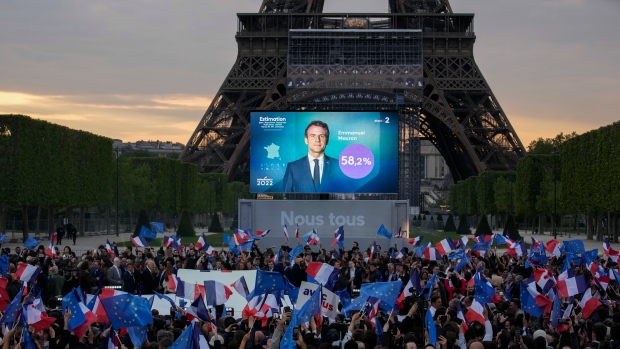French presidents are heads of state, not of government. It is not unusual for them to send a message of unity after an election, writes the BBC’s Henri Astier.
But given the extraordinary level of polarization in France, Macron felt he needed to be particularly forceful in his pledge to be “the president of everyone.”
He is fully aware that many voters backed him, as he put it himself, “not to support my ideas, but to block the far right.”
He now rules over a profoundly divided country in which 55% of first-round voters chose radical candidates who do not share his pro-European vision. In today’s second round, at least 40% have voted for a far-right figure.
The country’s divisions will be once again laid bare during the campaign for legislative elections in June that will determine who governs. Both the nationalist right and the hard left will be seeking to capitalize on widespread anti-establishment anger.
Macron knows that the road ahead will be long and hard for a centrist who is admired and hated in equal measure.


